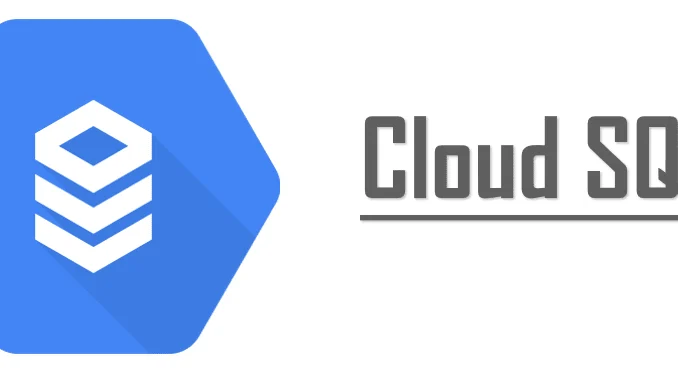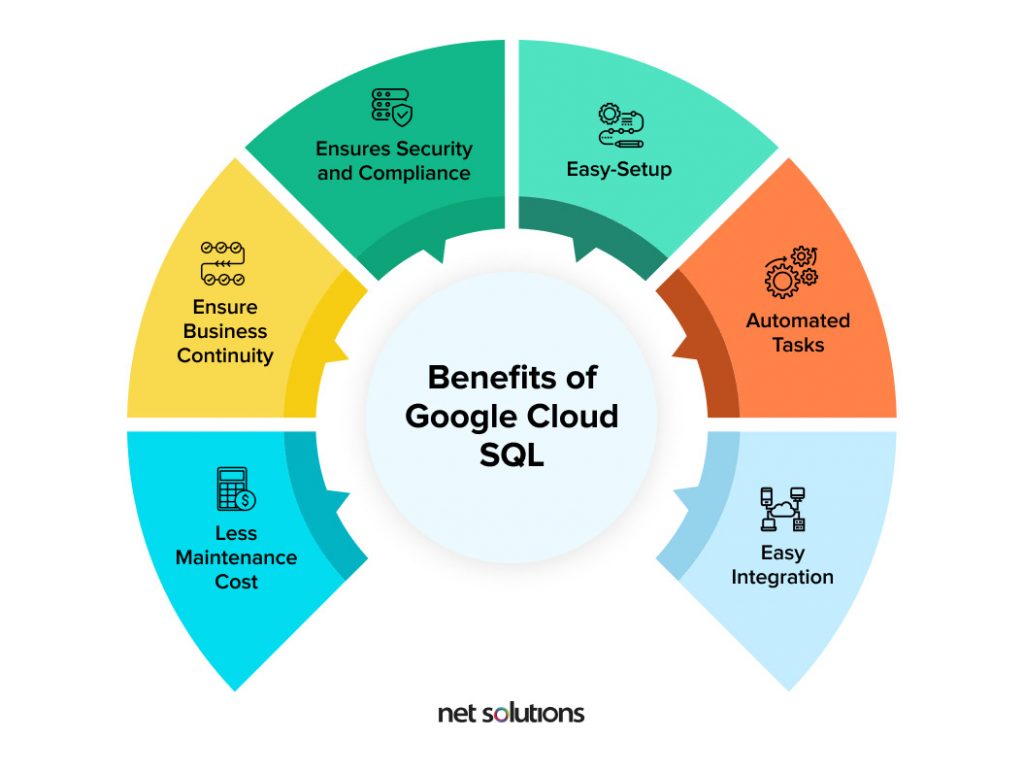
Are you tired of the limitations of traditional data management systems? Do you wish for a more flexible and scalable solution to handle your ever-growing data needs? Look no further! sql in the cloud is revolutionizing the way we manage data, offering unparalleled advantages that were previously unimaginable. In this article, we will explore the power of SQL in the cloud and how it is transforming the landscape of data management.
Let’s start by understanding the importance of SQL in data management. SQL, or Structured Query Language, is a powerful programming language used to manage and manipulate relational databases. It allows users to store, retrieve, and analyze data efficiently. Whether you are running a small business or a multinational corporation, SQL plays a crucial role in organizing and making sense of your data.

Now, let’s dive into the concept of cloud computing. Cloud computing refers to the delivery of computing services over the internet, including storage, servers, databases, and software. Instead of relying on local servers and infrastructure, cloud computing enables businesses to access and utilize resources on-demand. This revolutionary technology has transformed various industries, and SQL in the cloud is a perfect example of its capabilities.
With the advent of SQL in the cloud, businesses can now leverage the power of cloud computing to enhance their data management processes. This technology allows you to store and process your SQL databases in a cloud environment, providing numerous benefits that traditional on-premises systems simply cannot match. From increased scalability and cost-effectiveness to improved data security and accessibility, SQL in the cloud offers a plethora of advantages that can take your data management to new heights.
In the next sections, we will delve deeper into the advantages of SQL in the cloud, explore how to implement it effectively, discuss the challenges and considerations, and glimpse into the future of this transformative technology. So, fasten your seatbelts and get ready to embark on a data management journey like no other!
Stay tuned for the next section where we will uncover the advantages of SQL in the cloud and how it can revolutionize your data management processes.
Understanding SQL in the Cloud

Definition and Benefits
SQL in the cloud refers to the utilization of SQL databases in a cloud computing environment. By leveraging cloud infrastructure, businesses can store and manage their SQL databases remotely, gaining access to a host of benefits. With SQL in the cloud, you can enjoy increased scalability, flexibility, and cost-effectiveness. The cloud provides the ability to easily scale your SQL databases up or down based on your needs, ensuring optimal performance without the need for extensive infrastructure investments. Additionally, the pay-as-you-go pricing model allows you to only pay for the resources you use, saving costs compared to maintaining and managing on-premises systems.
Cloud Platforms Supporting SQL
Various cloud platforms offer robust support for SQL databases. The three major players in the cloud market, Amazon Web Services (AWS), Microsoft Azure, and Google Cloud Platform (GCP), all provide SQL database services tailored to different business needs. AWS offers Amazon RDS for SQL Server, MySQL, and PostgreSQL, while Azure provides Azure SQL Database and GCP offers Cloud SQL. These services provide managed SQL databases in the cloud, taking care of infrastructure management, backups, and updates, allowing you to focus on your core business operations.
SQL in the Cloud vs. Traditional On-Premises Systems
When comparing SQL in the cloud with traditional on-premises systems, several key differences emerge. On-premises systems require significant upfront investments in hardware, software, and maintenance. Scaling can be complex and time-consuming, often requiring additional hardware purchases and infrastructure adjustments. In contrast, SQL in the cloud offers easy scalability, allowing you to scale your databases up or down with just a few clicks. With the cloud, you have the flexibility to adapt to changing data needs without the hassle of hardware procurement or infrastructure management.
Moreover, SQL in the cloud provides enhanced accessibility and collaboration. Cloud-based databases can be accessed from anywhere with an internet connection, allowing remote teams to collaborate seamlessly. Additionally, the cloud offers robust data security measures, including automated backups, disaster recovery options, and encryption, ensuring the safety and integrity of your data.
In the next section, we will explore the advantages of SQL in the cloud in more detail, highlighting its impact on scalability, cost-effectiveness, data security, and collaboration. So, buckle up and get ready to unlock the true potential of SQL in the cloud!
Advantages of SQL in the Cloud

Increased Scalability and Flexibility in Managing Databases
When it comes to managing databases, scalability and flexibility are paramount. SQL in the cloud offers a game-changing solution by providing unparalleled scalability options. With traditional on-premises systems, scaling up your infrastructure to accommodate increased data demands can be a daunting and costly task. However, with SQL in the cloud, you can effortlessly scale your databases up or down based on your needs. Whether you need to handle a sudden surge in data or reduce your resources during low-demand periods, the cloud allows you to scale with ease, ensuring optimal performance and cost-efficiency.
Cost-Effectiveness and Reduced Infrastructure Requirements
One of the most significant advantages of SQL in the cloud is its cost-effectiveness. By leveraging cloud-based SQL solutions, businesses can eliminate the need for expensive hardware and infrastructure investments. With on-premises systems, you bear the burden of purchasing, maintaining, and upgrading hardware, which can quickly drain your resources. However, with SQL in the cloud, you only pay for the resources you utilize, reducing upfront costs and providing significant savings in the long run. Additionally, cloud providers handle infrastructure maintenance, allowing you to focus on your core business operations.
Enhanced Data Security and Disaster Recovery Options
Data security is a top concern for every business. SQL in the cloud offers robust security measures that protect your valuable data. Cloud providers invest heavily in state-of-the-art security infrastructure, including encryption, access controls, and regular security audits. This ensures that your data remains secure, even in the face of potential threats. Additionally, cloud-based SQL solutions provide built-in disaster recovery options, allowing you to easily restore your databases in case of unforeseen events. With off-site backups and redundant systems, you can have peace of mind knowing your data is safe and recoverable.
Seamless Collaboration and Accessibility for Remote Teams
In today’s digital age, remote work and collaboration have become the norm. SQL in the cloud empowers remote teams by providing seamless collaboration and accessibility to databases. With cloud-based SQL solutions, team members can access and work on databases from anywhere, anytime, enabling efficient collaboration and real-time updates. This eliminates the need for complex VPN setups or physical access to on-premises servers. Whether your team is spread across different locations or working remotely, SQL in the cloud enables smooth collaboration and boosts productivity.
In the next section, we will explore the implementation of SQL in the cloud. Stay tuned to discover the step-by-step process and best practices for harnessing the power of SQL in the cloud.
Implementing SQL in the Cloud

Step-by-step Guide to Setting Up SQL in the Cloud
So, you’re ready to embrace the power of SQL in the cloud? Let’s walk through a step-by-step guide to help you set up SQL in the cloud seamlessly. Follow these instructions, and you’ll be on your way to harnessing the full potential of cloud-based data management.
- Choose the Right Cloud Provider: Start by selecting a reputable cloud provider that offers SQL database services. Consider factors such as reliability, scalability, security, and pricing options. Popular choices include Amazon Web Services (AWS), Microsoft Azure, and Google Cloud Platform.
- Select the Appropriate Database Service: Each cloud provider offers various database services. Assess your needs and choose the one that best fits your requirements. Options may include managed SQL databases, database as a service (DBaaS), or virtual machines with SQL software installed.
- Provision and Configure Your Database: Once you’ve chosen the database service, provision a SQL database instance in the cloud. Configure the database settings, including storage allocation, backup options, and security measures. Ensure that you follow best practices for securing your database credentials and access controls.
- Migrate Existing SQL Databases: If you have existing SQL databases on-premises or in another environment, you can migrate them to the cloud. This ensures a seamless transition and allows you to leverage the benefits of the cloud without starting from scratch. Utilize database migration tools provided by the cloud provider or consider third-party solutions for a smooth and hassle-free migration process.
Best Practices for Optimizing SQL Performance in the Cloud Environment
Now that you have your SQL database up and running in the cloud, it’s essential to optimize its performance to ensure efficient data management. Follow these best practices to get the most out of your SQL in the cloud experience:
1. Optimize Resource Allocation:
- Monitor and adjust resource allocation based on database workload. Scale up or down as needed to maintain optimal performance and cost-efficiency.
- Utilize features like auto-scaling and automatic storage expansion to adapt to changing demands without manual intervention.
2. Design Efficient Database Schema and Queries:
- Develop a well-designed database schema, considering data normalization, indexing, and appropriate data types.
- Optimize SQL queries by using appropriate joins, indexes, and query optimization techniques.
- Regularly analyze query performance and make necessary improvements to enhance efficiency.
3. Implement Data Replication and Backup Strategies:
- Replicate your SQL database across different regions or availability zones for improved fault tolerance and disaster recovery.
- Set up automated backups and implement a reliable backup strategy to ensure data integrity and minimize downtime in case of failures.
By following these implementation steps and best practices, you’ll be able to harness the full potential of SQL in the cloud. Stay tuned for the next section, where we will explore the challenges and considerations associated with SQL in the cloud.
Challenges and Considerations

As with any technology, implementing SQL in the cloud comes with its own set of challenges and considerations. While the benefits are undeniable, it’s essential to be aware of the potential hurdles and take proactive measures to overcome them. Let’s explore some of the key challenges and considerations when using SQL in the cloud.
5.1 Potential Challenges and Limitations
While SQL in the cloud offers numerous advantages, it’s crucial to understand the potential challenges and limitations that may arise. One challenge is the dependency on internet connectivity. Since SQL in the cloud relies on network connectivity, any disruptions in your internet connection can impact the accessibility and performance of your databases. It’s important to have a reliable and stable internet connection to ensure uninterrupted access to your SQL databases.
Another challenge to consider is vendor lock-in. When you choose a specific cloud provider for your SQL in the cloud implementation, you may become dependent on their services and infrastructure. Changing providers or migrating your SQL databases to a different platform can be complex and time-consuming. It’s advisable to thoroughly evaluate different cloud providers and choose the one that best aligns with your long-term business goals.
5.2 Data Privacy and Compliance Issues
Data privacy and compliance are critical considerations when using SQL in the cloud. As your data resides on servers managed by the cloud provider, it’s vital to ensure that appropriate security measures and protocols are in place to protect your sensitive information. Additionally, depending on your industry and location, you must comply with specific data privacy regulations, such as the General Data Protection Regulation (GDPR) or the Health Insurance Portability and Accountability Act (HIPAA). Understanding the compliance requirements and ensuring that your cloud provider meets these standards is essential to safeguarding your data.
5.3 Network Connectivity and Bandwidth
To ensure optimal performance and responsiveness of your SQL databases in the cloud, it’s crucial to have sufficient network connectivity and bandwidth. Inadequate network connectivity can lead to latency issues and slow query execution times, impacting the overall user experience. Working closely with your IT team or network service provider to ensure adequate bandwidth and network optimization is essential for a seamless SQL in the cloud experience.
5.4 Monitoring and Optimizing Costs
While SQL in the cloud offers cost-effectiveness compared to traditional on-premises systems, it’s essential to monitor and optimize your costs. Cloud services operate on a pay-as-you-go model, and if not carefully managed, costs can quickly escalate. Regularly monitoring your resource utilization, optimizing your database configurations, and leveraging cost management tools provided by your cloud provider can help you keep your SQL in the cloud costs in check.
By being aware of these challenges and considerations, and implementing the necessary measures to mitigate them, you can ensure a smooth and successful implementation of SQL in the cloud. Now, let’s move on to the final section where we discuss the future trends and conclude our exploration of SQL in the cloud.
Future Trends and Conclusion

Future Trends
As we embrace the era of SQL in the cloud, it’s important to keep an eye on the future trends that will shape this technology. One of the key trends we can expect to see is the integration of artificial intelligence (AI) and machine learning (ML) capabilities into SQL in the cloud. This integration will enable advanced data analytics and predictive modeling, allowing businesses to gain deeper insights and make data-driven decisions with ease.
Another trend on the horizon is the increasing popularity of serverless architecture for SQL in the cloud. Serverless computing eliminates the need for managing servers and infrastructure, allowing businesses to focus solely on their applications and data. This trend will further simplify the deployment and management of SQL databases in the cloud, making it more accessible for businesses of all sizes.
Conclusion
In conclusion, SQL in the cloud is a game-changer when it comes to data management. Its unmatched scalability, cost-effectiveness, and enhanced security make it a must-have for businesses looking to stay ahead in the digital age. By leveraging the power of cloud computing, SQL in the cloud offers businesses the ability to store, process, and analyze vast amounts of data with ease.
Throughout this article, we explored the importance of SQL in data management and introduced the concept of cloud computing. We discussed the advantages of SQL in the cloud, including increased scalability, cost-effectiveness, data security, and accessibility. We also provided insights into implementing SQL in the cloud and highlighted the challenges and considerations to be aware of.
As we look to the future, we anticipate exciting trends such as AI and ML integration and the rise of serverless architecture in SQL in the cloud. These trends will further enhance the capabilities and usability of this revolutionary technology.
So, whether you’re a small business or a large enterprise, embracing SQL in the cloud is a decision that can transform your data management processes. Say goodbye to the limitations of traditional systems and unlock the full potential of your data with SQL in the cloud.
